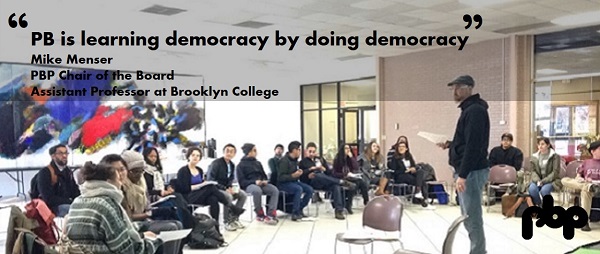The team at the Jefferson Center, an NCDD member organizations, recently began a series of guest blog posts on political engagement and democracy, and we were impressed by the series’ piece below from MN high schooler Bruce Acosta. In it, Bruce reflects about how increasing civic education, debate, and deliberation about social issues in schools can fight young people’s disengagement from political involvement and boost their democratic capacity – a trend our field can both support and benefit from. We encourage you to read his piece below or find the original version here.
Better Engaging Young People in Politics
 The problem of political participation and awareness among young Americans manifests itself both in and outside schools. Combined with low current involvement in linkage institutions, standardized testing has shown that students and younger voters are missing critical knowledge about our government and their duty in maintaining it.
The problem of political participation and awareness among young Americans manifests itself both in and outside schools. Combined with low current involvement in linkage institutions, standardized testing has shown that students and younger voters are missing critical knowledge about our government and their duty in maintaining it.
This is not to say that they do not care about their nation. On the contrary, studies suggest that this new generation of Americans is simply seeking out other, less institutionalized ways to enact change, including volunteering, activism, and organized protest. However, it is important to note that this is largely because of negative media portrayal of politics and narrowly-targeted campaigns that alienate these budding citizens. Thus, in order to effectively combat civic disengagement from traditional politics and promote political awareness, we must find how to utilize this desire to impact one’s community in addition to making voting intent and efficacy integral values in school curricula.
Among successful programs and reforms currently adopted by schools across the country are the open classroom climate and service learning. As a proven method in engaging students in politics, the open classroom climate is the teaching of civics with a strong focus on debate and discussion of social issues. Regarding the lack of appeal of traditional, or “big P” political activity shared by many young people that was mentioned earlier, a series of surveys in California and Chicago high schools and other research has highlighted the impressive results of this strategy in improving student interest in voting, as well as civic knowledge and general confidence in one’s democratic capacity.
On the other hand, service learning, the use of community involvement activities to enforce and supplement course concepts, provides students with a deeper connection to one’s ability to actualize their own goals through volunteering and activism, or “little P” politics. Overall, a study that compared the effects of these two pedagogical strategies affirmed that students exposed to service learning became significantly more involved in these unconventional actions, while open classroom students tended to lean towards participation through voting and joining a political party or interest group.
Despite the success of these schools in employing effective measures against political disengagement, it is also important that we continue to improve the current state of civics courses. While many ideas exist about the direction education should head, two particularly promising solutions stand out. Firstly, history classes, which are heavily favored by state curricula over government classes, could be taught with additional political context. By introducing more civics standards into history courses, schools that would otherwise be unable to provide their students with a background in politics would be able to teach them crucial skills and values to promote future activity.
Secondly, civics classrooms should adopt an increased use of the internet in teaching and student application of course content. For example, online discussion forums serve as potential avenues for children to debate and research issues that are relevant to them, helping to promote efficacy. Evidently, the classroom holds an infinite number of possibilities in expanding the political minds of young Americans.
You can find the original version of this guest blog post from the Jefferson Center at www.jefferson-center.org/engaging-young-people.








 Matt Haikin (lead author), Savita Bailur, Evangelia Berdou, Jonathan Dudding, Cláudia Abreu Lopes, and Martin Belcher.
Matt Haikin (lead author), Savita Bailur, Evangelia Berdou, Jonathan Dudding, Cláudia Abreu Lopes, and Martin Belcher.
